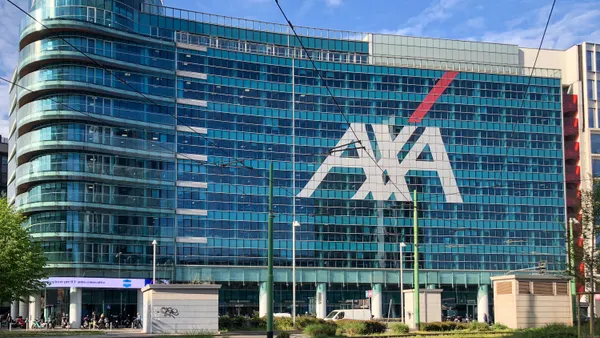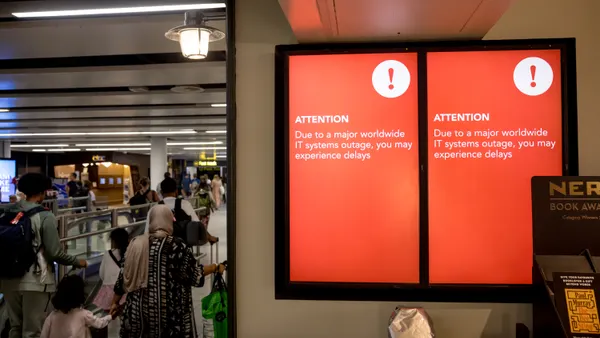Dive Brief:
- Almost six in 10 executives say the pandemic has accelerated their digital transformation initiatives, according to KPMG's Enterprise Reboot report released Thursday. The firm surveyed 900 global business and tech executives between March and June.
- In the next 12 months, executives project a spending increase across nearly all technology areas, with 80% companies currently investing in emerging technologies or planning to do so. More than half of executives rate cloud migration as an "absolute necessity."
- The combined use of emerging technologies is perceived by two-thirds of executives as more beneficial than standalone use. "AI-powered" and "cloud-enabled" technologies are features of more than one-third of technology solutions.
Dive Insight:
Companies had their chance for a short-term response to the pandemic crisis. Now, as disruption ensues, CIOs are trying to determine what to prioritize in the months and years ahead. But the planning process looks different than in years past.
Executives today think with more clarity about what technologies are crucial, said Cliff Justice, U.S. leader for Digital Capabilities at KPMG.
The pandemic "is really pulling back the cover on waste and driving a lot of focus," said Justice.
The biggest investments are happening in fields that can promise cost reduction. Automation is one such area, especially the kind of automation that can reduce the need for labor: robotic process automation, natural language processing or document readers rise atop the field.
By contrast, technologies without clear, short-term returns are more likely to face cuts.
While 43% of executives expect investing in process automation to increase, 25% expect it to decrease. When it comes to blockchain, just 34% plan to increase spending, and 30% have plans to decrease blockchain spend.
Nearly two-thirds of executives see more potential in emerging technologies when they're used together. It's a reflection of the level of maturity at organizations, Justice said.
"The nature of this new reality of remote work, not being able to do things face to face, has really forced this integration," said Justice. "It's driven a lot more sophisticated conversations around the outcomes that you're looking for by pulling these technologies together."














